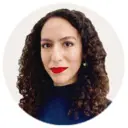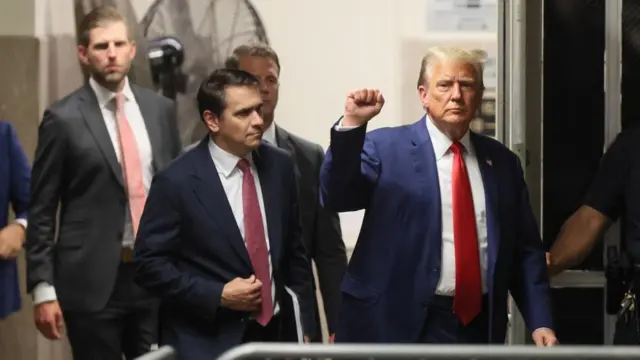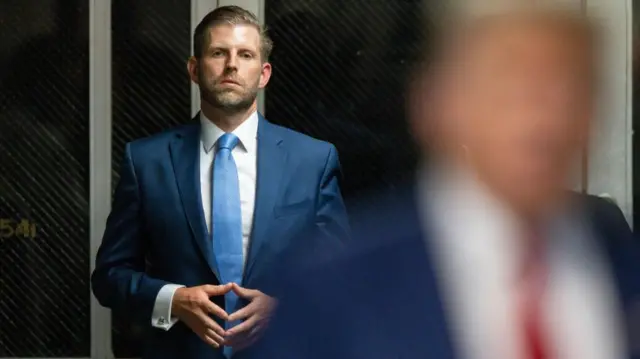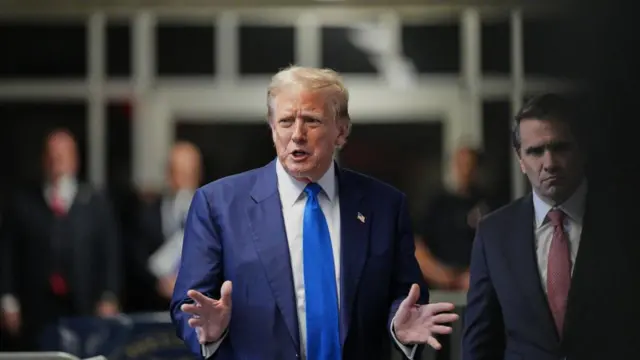Jurors head home, but court still in sessionpublished at 21:14 BST 6 May 2024
 Madeline Halpert
Madeline Halpert
Reporting from court
Although the jury has been sent home, the judge has not adjourned court for the day.
Justice Merchan is listening to a request from prosecutors to recall a witness, Georgia Longstreet.
She works for the DA's office and testified last Friday about entering information from Trump's social media posts.



